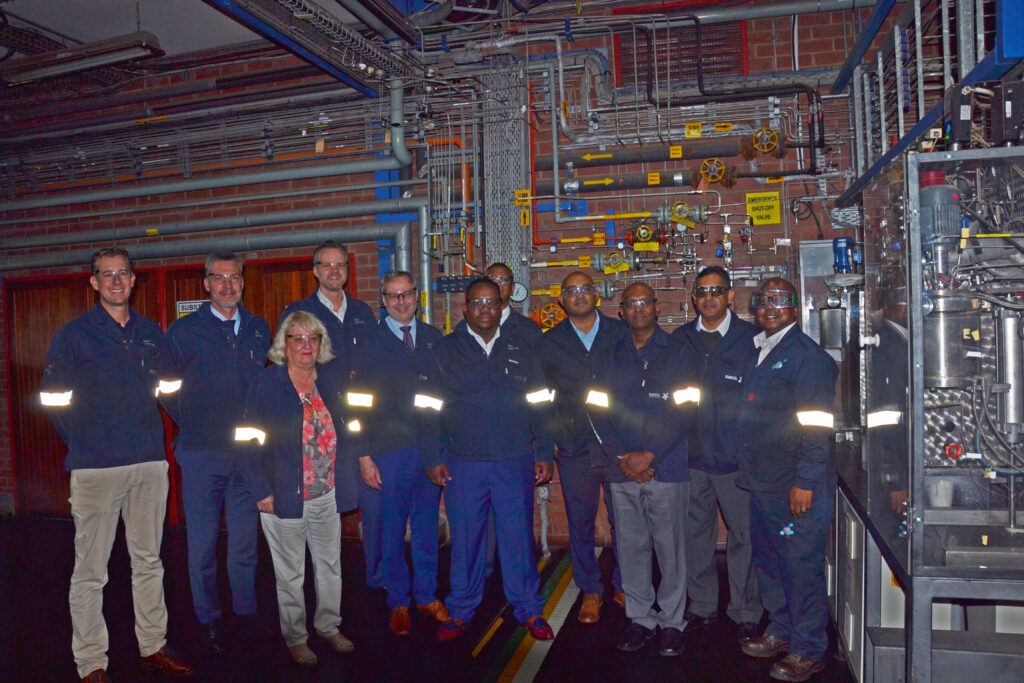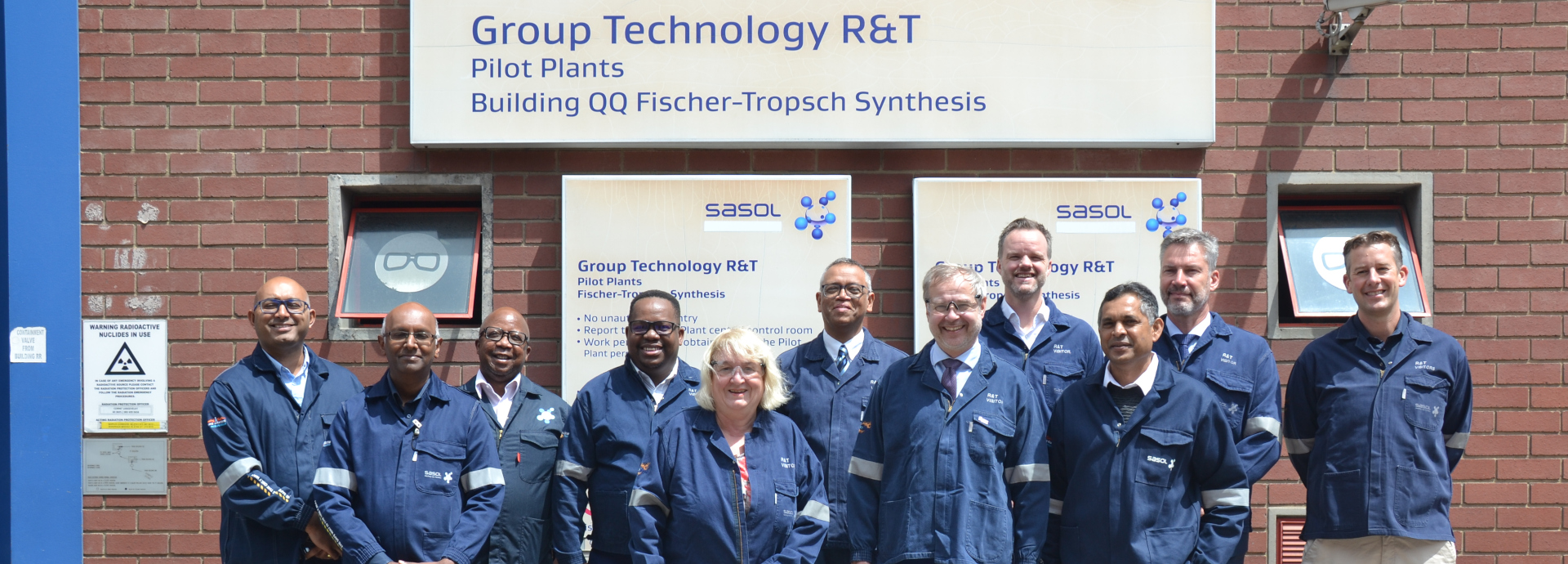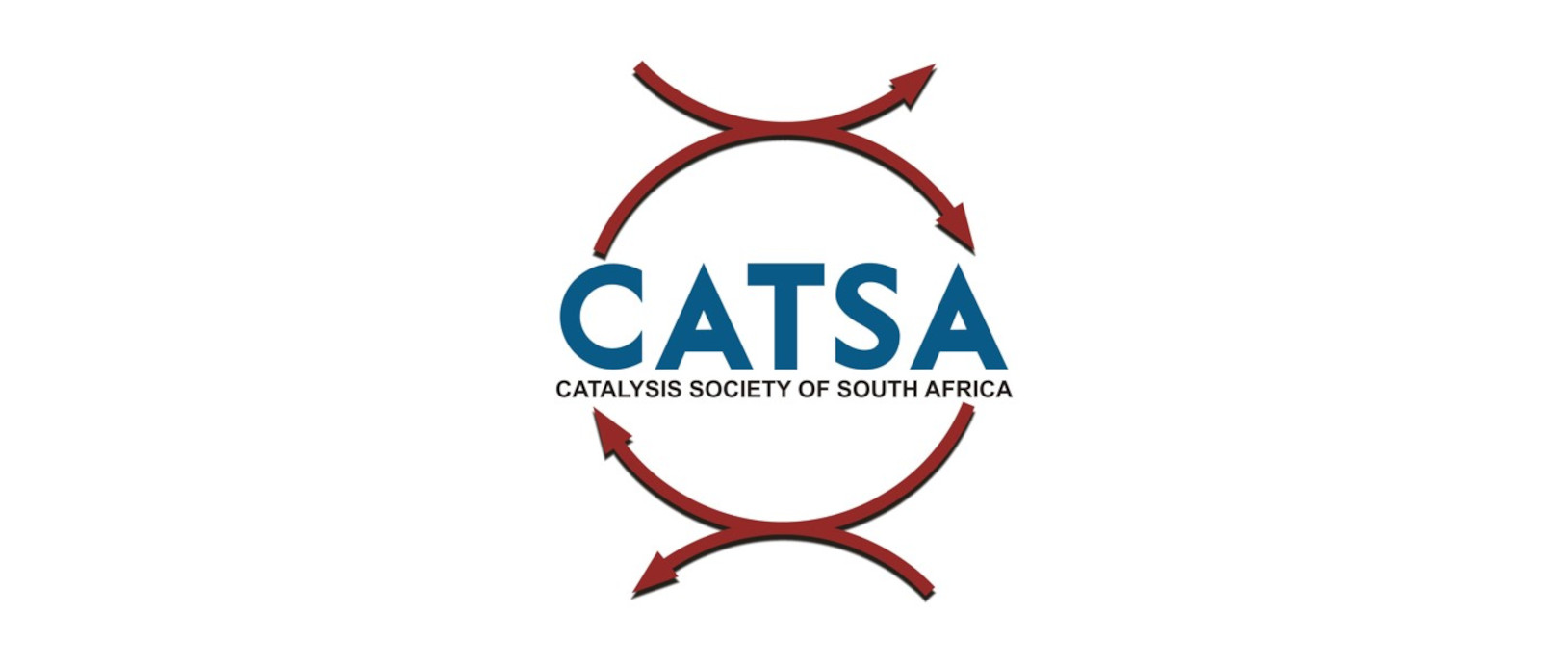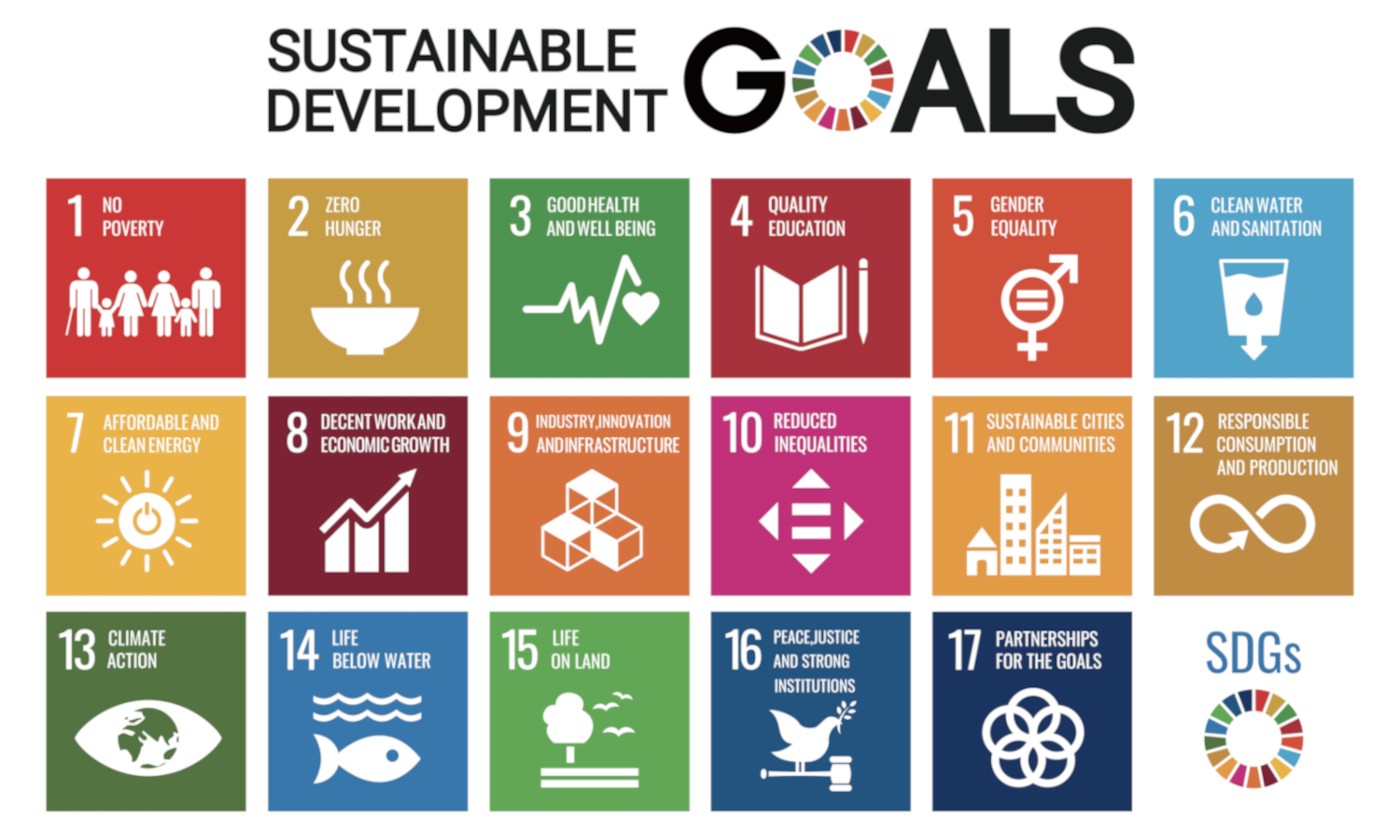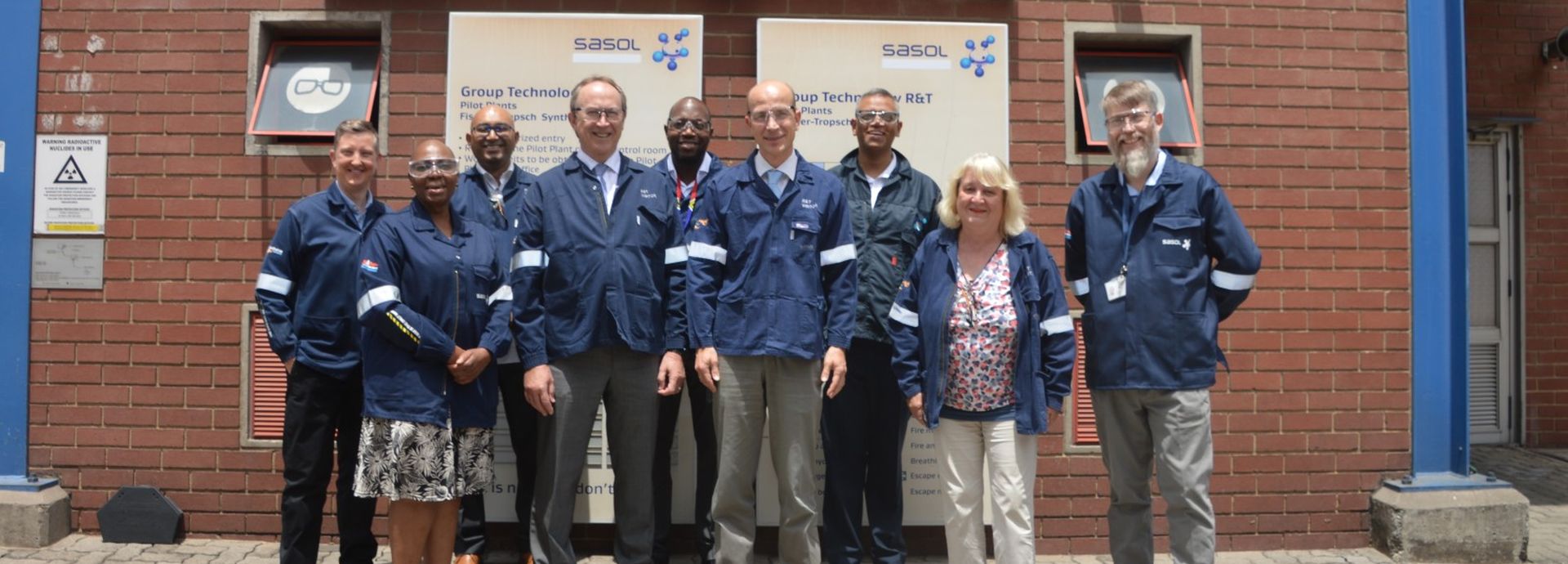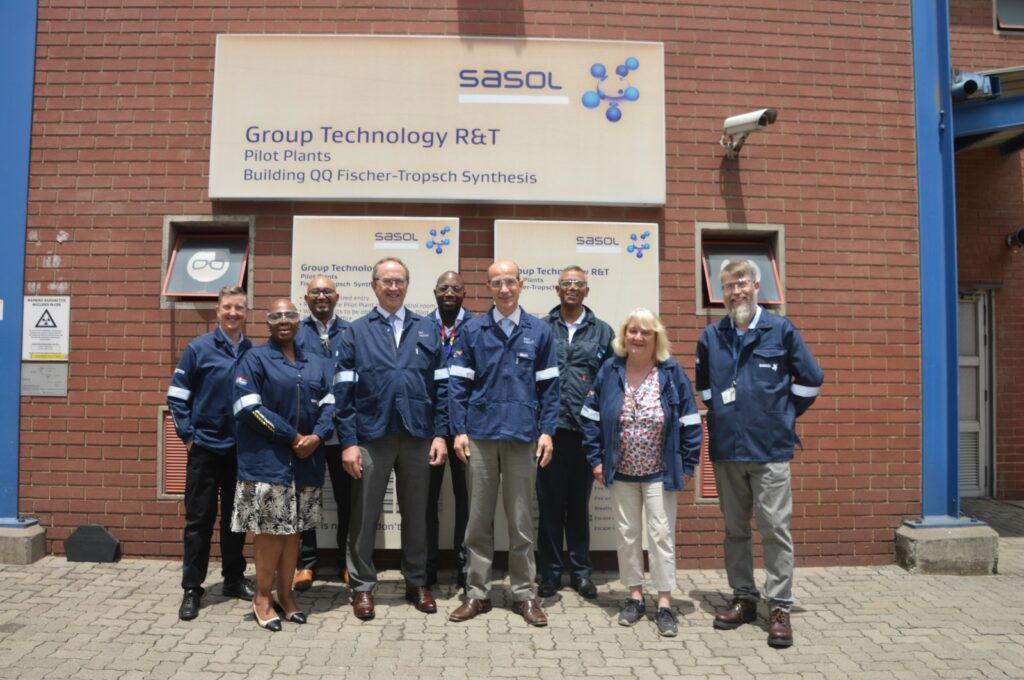International exchange continues: Sasol hosts German innovation officer in Sasolburg
Johannesburg, South Africa, 28 November 2022 Following the visit of the German Ambassador to South Africa Sasol Operations now hosted two more German envoys at the Sasolburg plant: Till Mansmann, Innovation Officer for Green Hydrogen at the German Federal Ministry of Research, Technology and Space (BMFTR), and H.E. Enrico Brandt, Deputy German Ambassador.
Together they got an idea of the work being carried out as part of the CARE-O-SENE project. The aim of the project is to develop novel Fischer-Tropsch catalysts needed for the production of sustainable kerosene on an industrial scale.
Between the obligatory safety briefings and a joint tour of the plant, last Monday's visit was filled with topics such as sustainable aviation fuels, the importance of green hydrogen, and the innovative use of Sasol's many years of experience in Fischer-Tropsch technology. Dr Denzil Moodley, Senior Scientist at Sasol, gave an overview of the current state of research and technology around CARE-O-SENE.
The visit of Mansmann and Brandt to Sasolburg continues the international exchange between Germany and South Africa. The project will thus establish long-term, strategic cooperation partnerships that will also play an important role in the development of future projects in the field of green hydrogen use.
For more information about the CARE-O-SENE project, please visit our FAQ page..
